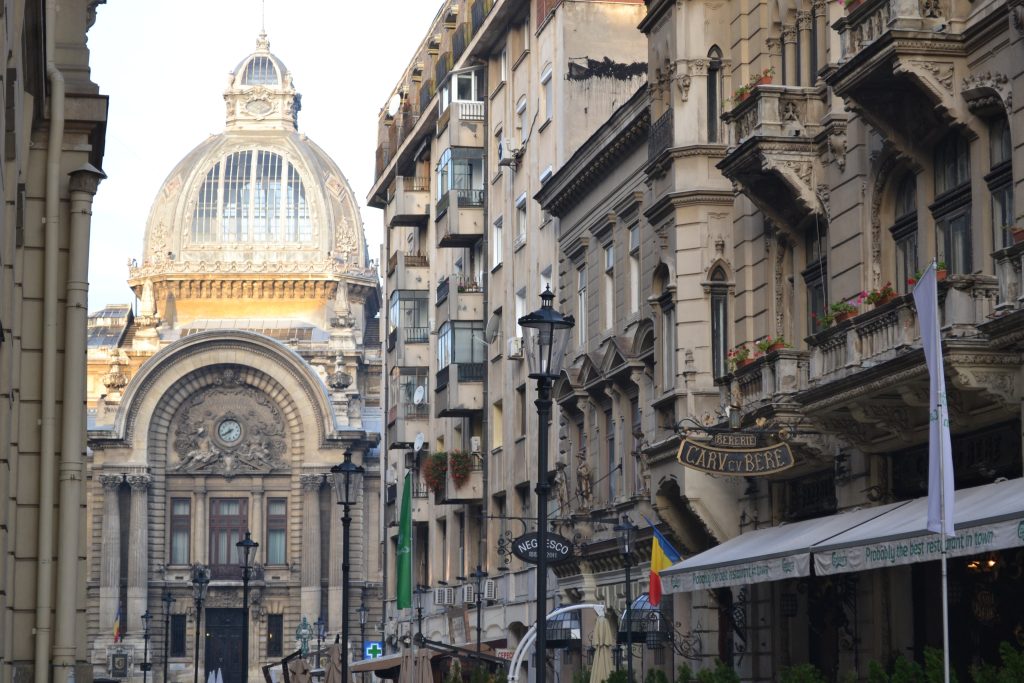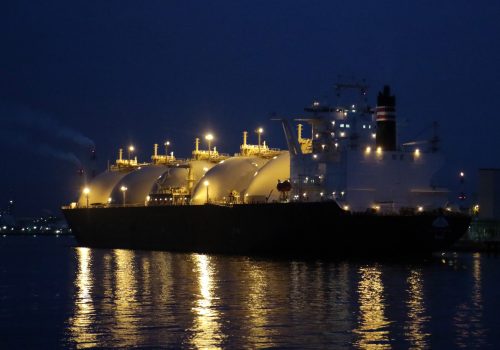The Three Seas Initiative (3SI) Summit in Bucharest next week takes place at a pivotal moment for Central and Eastern Europe. The nations that comprise the initiative–EU member states between the Baltic, Adriatic, and Black Seas–stand at the frontlines of Russia’s energy war against Europe. The war highlights the urgency of decarbonizing and developing new 3SI energy interconnections to diversify the region away from Russian fossil fuels. But it also exposed a state of energy underinvestment in Central and Eastern Europe that hinders diversification.
In Bucharest, leaders will take stock of the region’s progress and chart the next steps towards the region’s energy diversification. Doing so requires strong collaboration between regional and partner governments, as well as with the private sector. To catalyze investment to diversify the region from Russian energy, the summit should establish a Three Seas Chamber of Commerce to congregate private sector stakeholders, maintain momentum between summit meetings, and ensure robust public-private cooperation toward regional energy security.
Energy underinvestment in Central and Eastern Europe predates the war, but the crisis has exposes the necessity around strong collaboration between regional public and private partners to address these challenges. The Three Seas Initiative is an increasingly valuable forum to coordinate regional energy and climate investment efforts. The 3SI enables Central and Eastern Europe to speak with a unified voice, highlight important projects of common interest, and synergize energy, digital, and transportation policies to create a resilient, efficient, and low-carbon economy.
Yet, without continuity between annual 3SI events, the initiative’s potential has been stifled. Leaders at past summits considered remedies to sustain momentum, including the creation of a secretariat and the formation of designated issue-oriented working groups. Follow through, however, has limited.
While these intergovernmental bodies could prove invaluable for turning summit pledges into action, the establishment of a Three Seas Chamber of Commerce could be instrumental in marshaling private capital towards 3SI objectives.
A Three Seas Chamber of Commerce would offer multiple tools for galvanizing economic diversification. First, its ability to convene private sector stakeholders on a regional–rather than national–basis would create a powerful information clearing house for cross-border projects.
Perhaps more importantly, the chamber would act as a conduit to connect regional projects with outside capital. The organization could intercede with counterpart businesses in Western Europe, North America, and elsewhere to help companies navigate the varying policies and incentive structures across different countries in the region.
In addition, the chamber could act as a private-sector liaison to the The Three Seas Initiative Investment Fund–a financial institution established to invest in priority projects in the region. The chamber can articulate how private sector interests can invest in the fund and propose potential projects for it to consider.
Finally, the chamber could coalesce industry insights to identify supply chain bottlenecks obstructing diversification and work with regional and transatlantic institutions to address them. For example, to close workforce gaps in the clean energy economy, the chamber could support skills development programs needed to advance the 3SI region’s green and digital transformation.
While the chamber would ultimately become a private institution, the public sector can take the first step to establish this important new tool for ensuring regional energy security. Grants from the European Union and 3SI member states would provide the initial funding for the chamber. After this, the organization would transition toward a membership-based funding model, relying on dues from chamber members and other established chambers in the regions.
As the summit in Bucharest commences next week, leaders must consider how to sustain the progress being made on the region’s energy security and decarbonization. The establishment of a Three Seas Chamber of Commerce is one of the most effective ways to unleash the region’s full energy potential.
Olga Khakova is the deputy director for European energy security at the Atlantic Council Global Energy Center
Paddy Ryan is the assistant director for European energy security at the Atlantic Council Global Energy Center and the editor of EnergySource
Bailee Mathews is a fall 2023 young global professional at the Atlantic Council Global Energy Center
Meet the authors
Related Content
Learn more about the Global Energy Center

The Global Energy Center develops and promotes pragmatic and nonpartisan policy solutions designed to advance global energy security, enhance economic opportunity, and accelerate pathways to net-zero emissions.
Image: Old Town, Bucharest, Romania, courtesy of UnSplash (https://unsplash.com/photos/WziMWpMfGEY)






